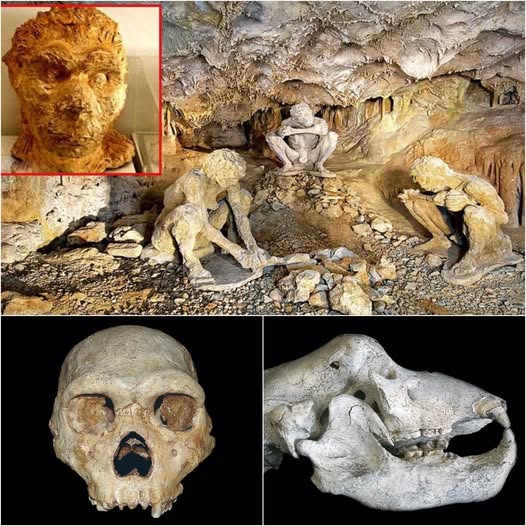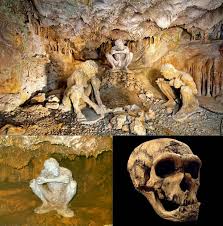Ancient Enigma Uncovered: A 700,000-Year-Old Skull Discovered in Greece

Ancient Enigma Uncovered: A 700,000-Year-Old Skull Discovered in Greece is a groundbreaking revelation that is shaking the very foundations of human evolutionary theory. Unearthed in the rugged landscapes of Greece, this astonishing find predates the widely accepted “Out of Africa” timeline, which posits that modern humans originated in Africa and migrated to other continents around 200,000 years ago. The implications of this discovery are profound, suggesting that early human ancestors may have been present in Europe far earlier than previously believed.

The skull, attributed to an ancient hominin, raises critical questions about the migration patterns of our ancestors. How did this individual end up so far from Africa? What environmental or social factors could have influenced such a movement? These inquiries compel scientists to reevaluate existing theories regarding human evolution and migration. The traditional narrative that has dominated anthropological discourse for decades may require significant revision.
This remarkable find challenges the notion that Europe was uninhabited by early hominins until much later. It opens the door to the possibility that multiple waves of migration occurred, with various species or subspecies of hominins exploring and adapting to different environments. The skull’s features, which exhibit a blend of primitive and advanced traits, may provide clues about the evolutionary transitions that occurred during this enigmatic period.

As researchers delve deeper into this discovery, they are scrambling to reexamine the evidence while considering the broader implications for our understanding of human origins. This ancient skull could represent a critical piece of the puzzle, highlighting the complexity of human evolution. It poses an exciting prospect: could this be the missing link to a forgotten chapter of our past, or perhaps a clue to something even deeper lurking in the annals of history?
The ramifications of this discovery extend beyond anthropology and archaeology; they touch upon our understanding of what it means to be human. By pushing back the timeline of human presence in Europe, we are compelled to confront the intricacies of our evolutionary journey. The narrative of human origins is not a linear progression but rather a rich tapestry woven with diverse threads—each representing unique adaptations and survival strategies.

In conclusion, Ancient Enigma Uncovered: A 700,000-Year-Old Skull Discovered in Greece invites us to reconsider the story of mankind. As scientists work to unravel the mysteries hidden within this ancient relic, we are reminded of the ever-evolving nature of knowledge and the importance of remaining open to new discoveries. This astonishing find may not only rewrite our history but also deepen our appreciation for the intricate and often mysterious journey of human evolution.